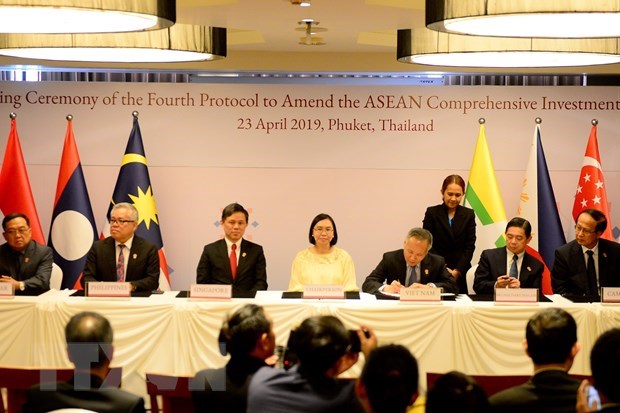 |
|
ASEAN economic ministers officially signed the ATISA on April 23, 2019. (Photo: VNA) |
The Ministry of Planning and Investment is tasked with collaborating with other ministries and agencies to implement the deal when it comes into force.
ATISA is considered a new step in ASEAN 's integration process of services. Upon coming into force, the pact will replace the ASEAN Framework Agreement on Services (AFAS) that took effect in 1995.
As a principle, ATISA establishes frameworks to implement liberalisation commitments from AFAS, reduce discriminatory barriers between service providers, and lay a solid legal foundation and a more transparent mechanism for trade in services in the region.
ATISA applies a "negative list" approach, under which all services sectors are considered as liberalised by default. A State would then list only those sectors/sub-sectors in which it has taken measures that it considers to run counter to the obligations of the agreement (also known as non-conforming measures).
ATISA also includes three sectoral annexes namely Annex on Financial Services, Annex on Telecommunication Services, and Annex on Air Transport Ancillary Services. These annexes include sector-specific obligations intended for deeper commitments and strengthened regulatory cooperation. In addition, the agreement also has Appendices I and II including the list of non-conforming measures of each ATISA member country./.
Source: VNA